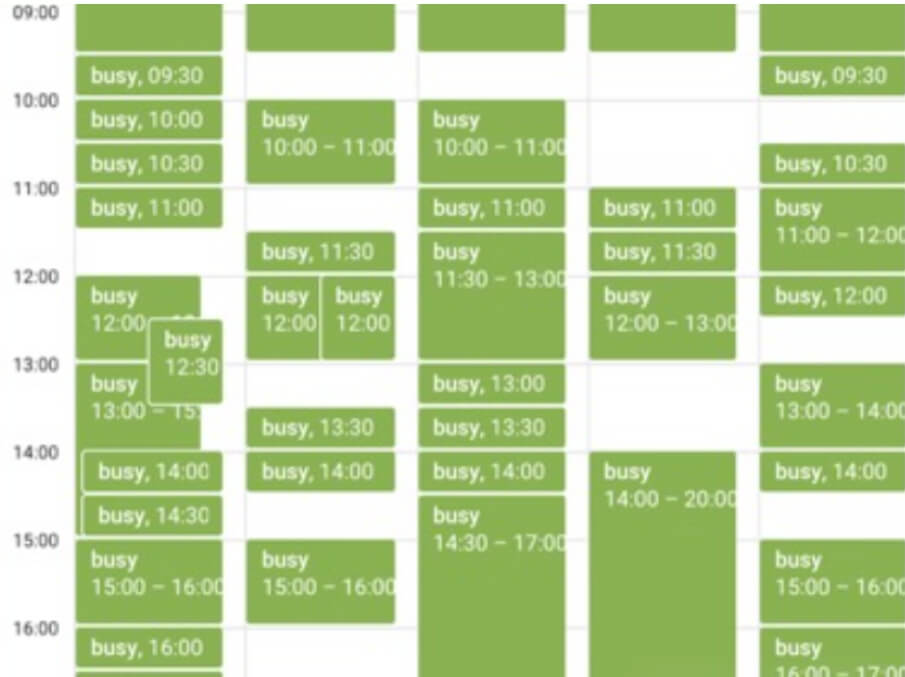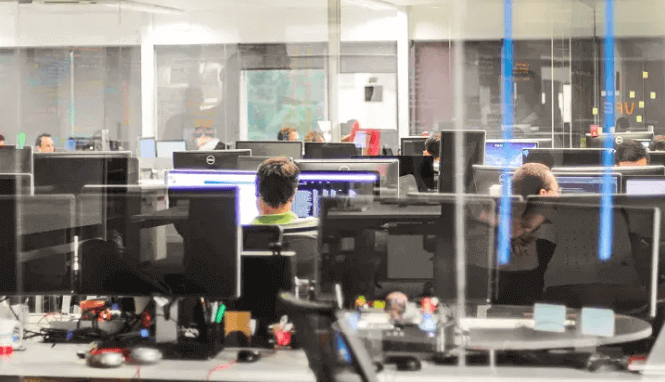Emotional intelligence, an understanding of workplace psychology, and the ability to think from multiple perspectives have become crucial "survival skills" that help you secure your job and enhance your influence. This article will delve into how mastering these soft skills can not only ensure your survival within a team but also help you thrive and succeed.

Have you ever encountered situations like this at work: You think you've come up with a brilliant idea during a meeting, but it receives no response; or when faced with a sudden project challenge, you believe you've handled it well, but the feedback from your manager is not as positive as you'd hoped? In reality, the workplace is not just a stage to showcase your professional skills—it's more like a complex survival game. To secure your position in this game, you need more than just work capabilities; you also need the three "survival skills" of emotional management, workplace psychology, and multi-perspective thinking.
I've been working at a large financial company for over a year now. Although it’s not a long time, I’ve experienced five or six rounds of restructuring, and I've seen many colleagues come and go. I think the main reason I've been able to stay stable is due to the benefits these three soft skills have brought me! Of course, it could also be because I'm handsome, but that’s not something I can share advice on!
Anyway, let's cut to the chase. I'll take you into the real world of the workplace and explore how these soft skills can help you take root and blossom within a team.
1. Emotional Management: Your Essential Workplace Survival Skill
When you learn to control your emotions in the workplace, people are more likely to notice you. Shortly after I started my job, my manager introduced me to the team, and during casual conversations, we discovered that a few of us were secret King of Glory players. To help me quickly integrate into the group, the manager decided to hold a team-wide King of Glory competition that month. The idea was to test everyone’s teamwork and stress tolerance in a fun setting.
I’d been playing for a while and was already at 60 stars in the game, but knowing that the others’ ranks were lower, I borrowed a smaller account so I wouldn’t stand out too much as the newcomer. Initially, I teamed up with a colleague we'll call Li, who picked a high-damage character and dominated early in the game. Every time he took down an opponent, he laughed loudly, making me feel like we had the match in the bag.
However, as the game progressed, the tide turned. Li became anxious and started to charge in recklessly, which left the rest of us unable to follow up and resulted in several unnecessary deaths. He began to blame others—though he didn't direct it at me since I was new. I sensed some passive-aggressive vibes, but it might have just been me overthinking. Still, the situation felt awkward.
After losing a few rounds, I figured we couldn’t keep going like that. I switched to a high-damage role and started dominating the lower-ranked match, effectively carrying the game. Li’s face was filled with frustration, and his sarcastic remarks made it seem like he was annoyed that I stole his thunder. But no one paid him much attention. In fact, people started giving me compliments, which I humbly attributed to our teamwork.
I suddenly realized that emotional management is far more important in the workplace than winning or losing. How someone handles their emotions under pressure can greatly impact their performance and relationships within a team. We’re all adults, and emotional outbursts are more likely to be ignored or avoided, whereas a calm and composed demeanor earns quick respect from others.
Contrasting Li’s behavior was our manager, who stayed calm and composed throughout the game, guiding the team with a steady tone and organizing our efforts. Even though he hadn’t played in a while and we lost the match, he smiled throughout, and afterward, he chatted cheerfully with everyone about the game, showing that winning wasn’t the point. This kind of demeanor wins people over.
Another example is Manager Zhou, who remained composed and supportive throughout the game. Though he was playing a support role and wasn’t in the spotlight, his steady presence reassured the team and made him invaluable. In the workplace, people like him are the hardest to replace.
1. The Importance of Emotional Management
This experience taught me that emotional management is crucial for workplace survival. No matter how skilled you are, if you can’t control your emotions and stay calm in critical moments, you risk losing the respect of your colleagues and superiors.
Li’s emotional volatility directly impacted our team’s outcome and led to failure. Meanwhile, our manager’s calm and Manager Zhou’s steadiness demonstrated how good emotional management can make you an irreplaceable figure in the team.
Emotional management isn’t just about controlling anger or anxiety. It’s about maintaining clarity and rationality in a fast-paced, ever-changing work environment. With effective emotional management, you can earn respect from your team and demonstrate maturity to your superiors, laying a solid foundation for your job security.
Mastering emotional management is like equipping yourself with a shield in the workplace. It helps you stay calm in complex situations and prevents you from losing your edge due to temporary emotional swings. In the next section, we’ll dive deeper into workplace psychology and explore how understanding others and self-regulation can further solidify your position at work.
2. Workplace Psychology: The Advanced Survival Skill
1. Observing Your Leaders: Decoding Behavior and Offering Timely Support
Sometimes you might notice that your manager seems indecisive or suddenly changes a plan that was seemingly set in stone. This can leave you confused or even questioning their competence. However, this often has to do with cognitive biases. Managers tend to be influenced by past successes, leading to overconfidence in certain strategies. But when new information emerges, they may start second-guessing themselves as they seek certainty.
Understanding this can prevent negative emotions when facing a leader’s indecision. Instead, you can proactively offer more information and support, helping your manager make more informed decisions. This not only enhances your standing with your manager but also shows your insight and support within the team.
For example, when my manager recently asked about the use cases of a certain set of materials from the previous month, I understood that he was preparing a report for higher-ups. Anticipating this, I compiled a detailed summary of the data and sent it over, which he greatly appreciated. It’s a small example, but one that shows how understanding leadership psychology can make you more effective.
2. Observing Colleagues: Adjusting Interactions to Boost Teamwork
Interaction with colleagues is one of the most frequent and direct aspects of workplace life. Each colleague has different work habits and personalities, and understanding these differences is part of applying workplace psychology.
For instance, some colleagues remain calm under pressure, while others show anxiety. By recognizing these traits and adjusting how you interact with them, you can enhance collaboration. If a colleague is prone to anxiety, offering support can ease their stress and help them perform better. Conversely, those who thrive under pressure can be given more challenging tasks to fully utilize their strengths.
Through emotional management, workplace psychology, and multi-perspective thinking, you can solidify your position within a team and create a long-lasting influence.
3. Self-Improvement: Maintaining Composure Under Pressure
Xiao Li (a pseudonym) is a designer at our company, responsible for a key R&D project. The project had high demands and tight deadlines, combined with internal team conflicts, leaving Xiao Li under immense pressure. At first, he chose to work overtime, hoping that harder work would ease the pressure. However, as time went on, his sleep quality worsened, his work efficiency decreased, and he even started experiencing emotional fluctuations, becoming more irritable toward his team members.
Finally, during a routine meeting, Xiao Li lost his temper over a minor issue, bringing down the entire team's morale.
He then engaged in deep self-reflection and realized that his stress wasn’t just from an excessive workload but also from a fear of failure and worrying too much about others' expectations. We talked a lot back then, and to sum it up: Well, who doesn’t feel a little crazy at work sometimes?
So, how can we adjust ourselves in such situations? I have a few small tips for reference:
Set Realistic Expectations: Assess the timeline and goals of each project, clarifying which tasks are priorities and which can be slowed down. Communicate proactively with your manager to secure better resource allocation and support, reducing your own burden. (Simply put, work according to what you’re paid—don’t overburden yourself!)
Learn Relaxation Techniques: Take 20 minutes each day for a power nap at noon. When stress builds up, pause your work, close your eyes, and take a few deep breaths. You can get up and take a walk, head downstairs for a smoke or grab a bubble tea. These simple relaxation techniques provide some breathing room in a hectic work rhythm.
Seek Support Actively: It’s unrealistic to handle all the pressure alone. Communicate more openly with trusted team members, express your feelings and difficulties, and seek mutual understanding. Find a buddy—if you’re going crazy, go crazy together!
Cultivate Positive Self-Talk: Pay attention to your internal dialogue. If you constantly repeat in your mind, “I must finish this project, or I’m a failure,” then you’re bound to collapse under the pressure. Learn to adjust your self-talk proactively, telling yourself, “Do your best, mistakes are part of learning, and no job is worth losing your sanity over.”
Build Healthy Habits: Only when your body is healthy can you better handle workplace stress. Maintain a regular schedule, ensure sufficient sleep, and release pressure through exercise. Adjust your diet by reducing caffeine intake and increasing the proportion of fresh fruits and vegetables to improve your overall physical health. After all, staying healthy is more important than earning money to cure future health issues!
By using these methods, I’m able to keep my mindset calm and avoid being overwhelmed by pressure. In fact, I’ve found that my work efficiency has significantly improved, and the office atmosphere has followed suit. Self-mental development isn’t something that happens overnight—it requires conscious effort to manage your emotions, build healthy habits, or seek external support. This not only helps us maintain good performance in the workplace but also allows us to stay composed when facing challenges, and continue moving forward.
By implementing these self-mental development strategies, you can not only manage workplace stress effectively but also maintain consistent performance in your role, ensuring that you stay ahead.
Workplace psychology is key to understanding professional relationships and is an important safeguard for job stability. By understanding others and adjusting yourself, you can navigate the complexities of the workplace smoothly, enhancing your influence within the team. Next, we’ll explore a core workplace skill—multidimensional thinking—which will help you find the best solutions when facing complex problems, further solidifying your position at work.
3. Multidimensional Thinking—A Core Skill for Workplace Survival
1. Objective Observation: Viewing Any Situation from All Angles to Gain Insight
Problems in the workplace and life are often like a prism. When viewed from different angles, they reflect entirely different perspectives. The essence of multidimensional thinking is to observe the same situation from multiple viewpoints, revealing its truth and enabling the wisest judgment. Instead of blindly diving into a situation, it’s better to take the perspective of a rational observer and see the essence beyond appearances. This helps us better understand social phenomena and navigate complex workplace situations.
Let’s look at two recent social issues whose underlying logic and lessons offer profound insights for the workplace.
The "Black Wukong" Game Incident: The Loss of Reason in Collective Emotion
Recently, a Chinese game called "Black Wukong" sparked widespread discussion. After its release, many netizens regarded it as a symbol of the rise of Chinese culture, even associating it with patriotism. However, when some players pointed out flaws in the game experience, such as the lack of a mini-map or less-than-smooth controls, many netizens didn’t engage in rational discussion but instead quickly labeled the critics as "unpatriotic" and launched personal attacks. As a result, those who wanted to share honest feedback were silenced, and opportunities for improving the game were stifled. This outcome seems to go against the original intentions.
Multidimensional Analysis: The Conflict Between Collective Conformity and Individual Reason
Emotion vs. Rationality: What we see here is not just a debate over a game but the suppression of individual rationality by collective emotional thinking. This phenomenon is common in the workplace too. When a project is overly idealized, any critical feedback is often seen as being “unsupportive” or “negative.” However, from a rational perspective, only through genuine feedback can continuous improvement happen. Multidimensional thinking helps us understand the importance of maintaining independent thinking amidst collective emotion and calmly assessing the situation during a wave of praise or criticism.
The Risks of Groupthink: When a team falls into groupthink, important risk points are often overlooked. Just like the silenced player feedback, if critical opinions in the workplace are ignored, the project might face significant issues later. Leaders need multidimensional thinking to guide the team, encourage diverse opinions, and ensure all potential risks are considered.
"Range Rover Woman" Queue-Jumping Incident: The Art of Countering Power Struggles
The incident involving a "Range Rover woman" queue-jumping and assaulting a retired soldier sparked widespread public attention. Although in that situation, the retired soldier had the ability to take more direct action, such as walking away or fighting back—or at least rolling up the car window to avoid harm—he chose instead to record a video and expose the incident online. Although the punishment for the Range Rover woman (10 days in detention and a fine of 1,000 yuan) was seen as too lenient, the event quickly escalated into a public issue, bringing legal and social pressure on her.
Multidimensional Analysis: The Diversification of Power and the Wisdom of Strategic Counteractions
Short-Term Response vs. Long-Term Impact: In this incident, the retired soldier didn’t choose an impulsive response but instead took rational action that steered the situation in his favor. In the workplace, when faced with injustice or conflict, direct confrontation isn’t always the best option. Multidimensional thinking allows us to see that a wise counteraction often has more lasting impact. Victories achieved through rational analysis and steady action are the ones that truly change the situation over the long term.
The Real Source of Power: Traditional thinking views power as being tied to one’s position. However, in this case, we see that power doesn’t just come from one's status but also from public support and the influence of opinion. This is true in the workplace as well. A leader’s real power isn’t just about their position but whether they can earn the trust and recognition of their team. Multidimensional thinking helps us understand that real power lies in how many resources you can mobilize and how many people you can influence—resources and influence that often depend on your reason and wisdom.
2. Staying Rational in Complex Situations
In these social events, we’ve seen the clash between emotion and rationality, and the battle between power and wisdom. The core of multidimensional thinking is to help us stay rational in complex situations, not to be swayed by emotions or dazzled by power, but to analyze from multiple angles and find the best solution.
In the workplace, multidimensional thinking can help us:
Stay calm in emotionally charged environments, avoiding blind conformity.
Enhance the overall decision-making quality of the team through rational feedback and analysis.
Find wise ways to handle power imbalances, securing long-term victories.
Conclusion
Surviving in the workplace is not just about technical skills and experience; it’s also about emotional management, understanding workplace psychology, and applying multidimensional thinking. Emotional management helps us stay calm under pressure, workplace psychology helps us better understand the behaviors of colleagues and superiors, and multidimensional thinking provides the ability to examine problems from all angles to find the best solutions.
By combining these three "life-saving" skills, we can not only maintain our competitiveness in complex work environments but also establish ourselves as indispensable members of the team. Whether you're facing daily work challenges or sudden crises, these skills will help you remain steady and undefeated.
I hope these thoughts and suggestions can inspire you, enabling you to navigate the workplace survival game with ease and secure your position!







